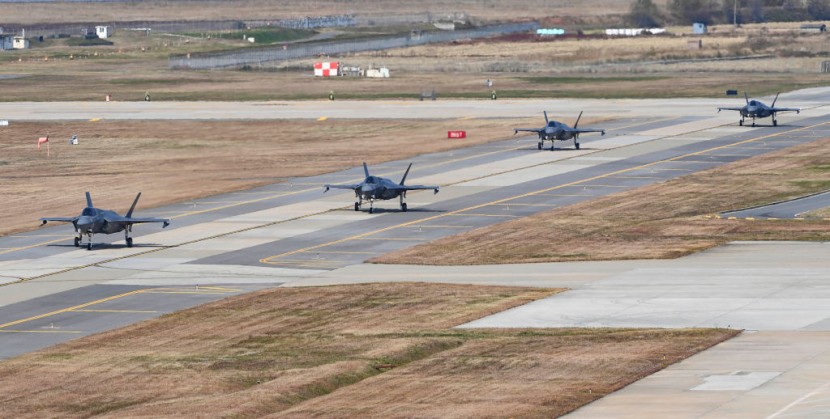
European countries like Germany have decided to boost national defence, but the German Aerospace Industry (BDLI) thinks otherwise. Plans to buy F-35s is one of these decisions by Berlin has been announced as well; it is a big chance for many EU members in particular.
Germany Decides To Buy F-35s
In March of this year, Berlin decided to buy the Lockheed Martin 5th generation stealth fighter as a replacement for the German Eurofighter Typhoon, reported Bulgaria Military.
Along with the expense due to the conflict in Ukraine, another expenditure of $113 billion was to upgrade the German forces and the US jets as part of the defence deal.
The German Chancellor Olaf Scholz with Germany's Minister of Defense Christine Lambrecht are both mistaken, according to some sectors against the purchase. For them, it is a rebuke that their policy does not come from society.
Instead, the German defence industry and association of aerospace firms have unilaterally voiced their objection to allowing the conclusion of the deal with US weapons manufacturers, noted EurAsian Times.
One reason for the uproar in the German Aerospace Industry is the deal struck by Washington for the sale of F-35s that has rubbed them raw.
According to sources, only American firms would be involved in the defence deal, which is the upkeep, improvement of the system, and servicing of the stealth fighters. It says that Washington does not want non-firms to profit from the arrangement. Another European nation that could be Italy is alleged to be the only other participant in the deal.
German Aerospace Industry Shafted by the US Deal
Immediately the BDLI went on to justify its dismissal of the deal reached by Scholz, which contradicts a lot. Mentioning as an example, the recent US stealth fighter deals were made by consulting the European nation that should be contracted to do local maintenance. Also, Switzerland, which is not actively part of any arms market, got a $3 billion contract to service the hardware.
The German publication Wirtschaft has released a recent report that asserts that such an order is a significant setback to the German arms trade. BDLI also remarked on the behavior of the German government and criticized it. Noting that in Berlin, they did not consider an alternative in which native domestic manufacturing could participate.
Another of the big players in aviation, Airbus, also expressed its opinion. As said by Wolfgang Schöder, managing director of Airbus Helicopters, these acts by the authorities endanger not just the presence of the domestic defence industry. It also jeopardizes innovations that were produced locally in the past few decades.
This statement is amid the reality that Berlin is willing to spend upwards of $16 billion just on the F-35 and latest CH-47F Chinook heavy-lift helicopters, per Air Force Technology.
Condemnations against Berlin's judgments are severe and, along with several other analysts, very deserved. The BDLI and the German arms industry behind them admit that it is not just a matter of maintaining and updating foreign advancements but also of the complete absence of a security and defence policy. Under the agreement reached by Scholz, the German Aerospace Industry will not exclude them F-35s will be serviced by US firms and someone else, another sideline dealing with Washington.
Related Article: South Korea's US-Made Stealth Jets F-35 Unable to Complete Missions Following Severe Maintenance Problems
© 2025 HNGN, All rights reserved. Do not reproduce without permission.








